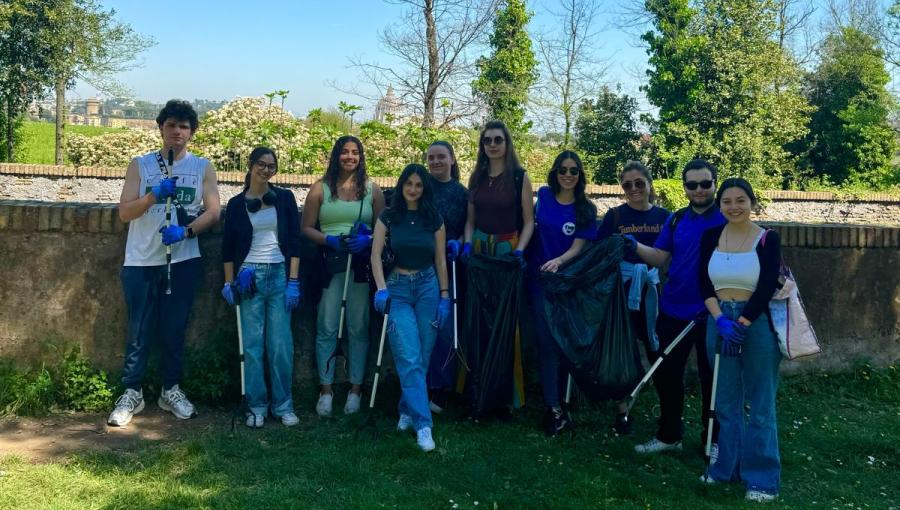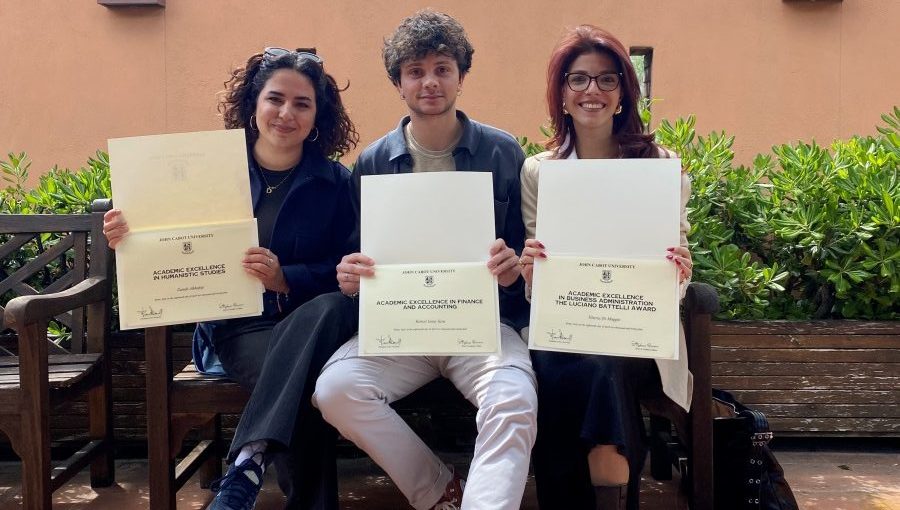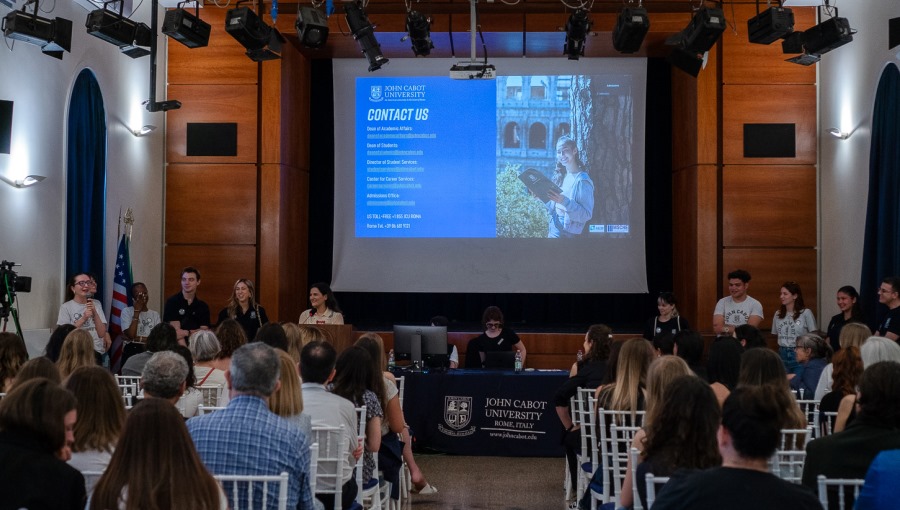International Conference at JCU on Copyright, Democracy, and Education
On Friday, September 16th, John Cabot University hosted the USeIT: Knowledge, Creativity and Fair Uses in Higher Education, an International Conference on Copyright (Authors’ Rights in Civil Law countries). The conference, which began with a keynote speech by John Carwile, Minister Counselor for Economic Affairs for the US Embassy in Rome, was well-attended and focused on defining and creating a universal understanding of copyright laws as applicable to higher education.
The twenty-eight presenters offered multiple perspectives on why copyright laws present a challenge for college students, faculty and administrators, most of them focusing on the need for balance and a more global definition and application of copyright laws. There were calls for a re-interpretation of “free use” for the purposes of study and research.
Tracy Mitrano, Director of IT policy at Cornell University, launched the conference presentations and offered a dynamic historical overview of US copyright law, including a discussion of ongoing cases, such as Google Books. Ms. Mitrano argued that the current stringency in copyright laws has had a negative impact on creative endeavors, and are fostering the development of a “generation of criminals.” In response to a question by JCU President Franco Pavoncello, she said that free access and fair uses ought to be the civil rights issue for the new generation. This scenario was further described by Roberto Caso (University of Trento): the more that the technology advances and is able to disseminate information, the more the copyright laws are affected by the lobbying pressure of corporate content owners. In his opinion, Universities should advocate for the right to access information.
Of particular interest was Giuseppe Mazziotti’s (University of Copenhagen) presentation on Article 70 of the Italian Authors’ Rights Act, which presently makes the process of copying documents for educational use more than a challenge in Italy. Professor Gustavo Ghidini (Luiss) focused on the EU directives, showing their unnecessarily restrictive approach. Other attendees and presenters tended to agree with Professor Ghidini that EU copyright law overprotects content owners at the expense of everyone else.
Many of the presentations explored current practices related to copyright in universities, students’ needs, awareness, and behavior. A team from La Sapienza University, Rome (Giovanni Prattichizzo, Paola Panarese) presented the outcomes of the research lead by Mario Morcellini, Director of the Communications and Social Research Department, on students’ perceptions of copyright. In general it appears that students are not as concerned about violating copyright laws, particularly in regards to copying entire textbooks. Antonello Scorcu and Laura Vici (University of Bologna) presented a huge research study (14,000 respondents in two different universities) on students’ preferences for studying with photocopies (less expensive), textbooks, or class notes and Professors’ handouts.
How can universities begin to better educate students and create policies and safeguards that can diminish copyright infringements? The conference presented and discussed some student- made videos advertising the theme “don’t take what isn’t yours.”
Can technology help prevent infringements? This was the theme of the last session, which showcased the first Italian experiments with Electronic Course Reserves (Marisa Santarsiero and Anna Vaglio, Bocconi University Library) and computer programs such as CopyRight Check, presented by Cineca’s Gabriella Scipione and Alessio Favorite.
The day-long offerings of PowerPoint presentations, videos, and speeches all struggled with the tension between protecting property and valuing a creative, informed, and democratic citizenship.
Diedré M. Blake





